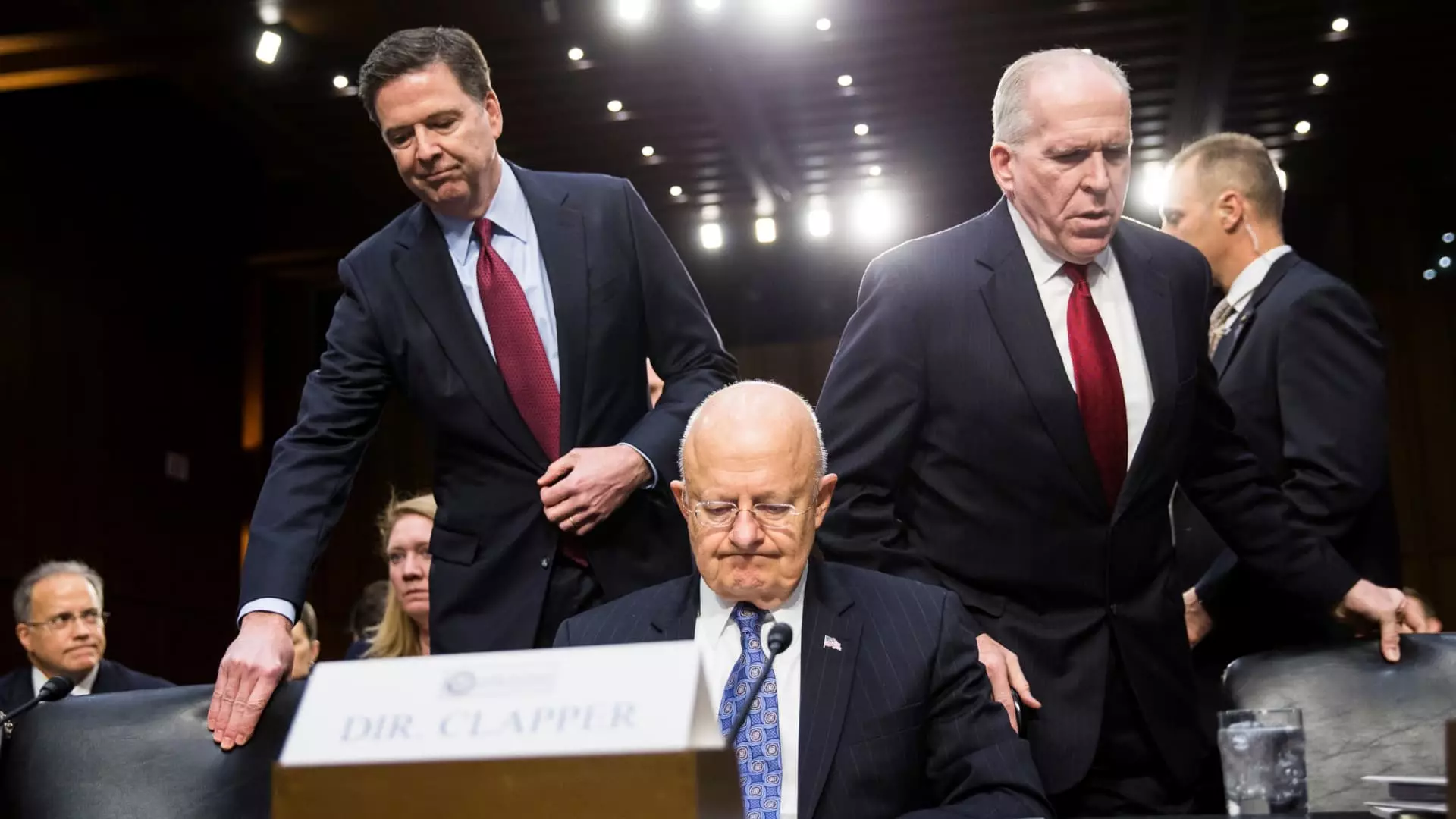In recent months, the landscape of American justice has morphed into a battleground of political calculation and power struggles. The investigation into high-profile figures like former CIA Director John Brennan and ex-FBI Director James Comey reveals more about the motives of the current administration than about any genuine pursuit of justice. While the official line remains cautious—”we do not comment on ongoing investigations”—the underlying message is clear: political vendettas are increasingly cloaked in the guise of legal proceduralism. This ongoing scrutiny underscores a broader trend where legal institutions seem to serve partisan agendas rather than impartial justice.
The deployment of criminal investigations against figures associated with previous administrations raises profound questions about the integrity of the rule of law. Are these probes motivated by genuine accountability, or are they tools wielded to silence political adversaries and reshape electoral outcomes? The murky timing—investigations reportedly initiated years after the events in question—suggests a politicized agenda rather than diligent law enforcement. It’s a troubling spectacle that diminishes the credibility of institutions designed to serve as impartial arbiters.
Why These Targets Matter Beyond Politics
John Brennan’s role as a former intelligence chief and a media pundit now caught in legal crosshairs symbolizes more than just individual allegations. It exposes the dangerous tendency of wielding the legal system as a weapon to punish political rivals under the guise of national security. The fact that Brennan is a paid contributor to networks critical of the president adds a layer of media spectacle to the ordeal, highlighting how bipartisan perceptions of justice are increasingly overshadowed by partisan narratives.
For Comey, the investigation seems to hinge on past actions, with little clear evidence of recent misconduct. Yet, the timing—occurring years after his tenure—appears deliberately designed to tarnish his reputation and sow distrust in federal institutions. These actions, whether justified or not, threaten to undermine the very foundations of accountability, turning the pursuit of justice into a spectacle of political suppression.
The investigation’s focus on past mistakes, especially concerning the handling of intelligence around the 2016 election, underscores how history is weaponized in contemporary political disputes. It prompts one to question whether these investigations serve any real purpose or are just another chapter in a long-standing effort to reframe political history through criminal proceedings.
The Broader Context: Power Dynamics and Institutional Integrity
In the backdrop of these investigations lies a broader narrative of power consolidation and institutional erosion. The Justice Department’s “Weaponization Working Group” and actions such as firing personnel involved in politically sensitive investigations reveal an overt desire to reshape the judiciary and enforcement agencies into political tools. This politicization risks long-term damage to the legitimacy of law enforcement, which is essential in maintaining democratic stability.
The Trump administration’s approach to legal accountability—focused primarily on perceived enemies—raises serious concerns about the abuse of power. Conversely, it exposes a double standard in how accountability is applied. Supporters may see these investigations as justified efforts to expose corruption, but critics argue they are unwarranted political persecutions that threaten the independence of the judiciary. When law enforcement becomes an extension of political rivalry, the core principles of justice and fair play are fundamentally compromised.
Furthermore, the attempt to interrogate past actions—such as the handling of Russia’s interference or the infamous Steele Dossier—reveals a desperation to rewrite narratives and manipulate public perception. It’s a clear sign that political actors are increasingly willing to distort facts and leverage legal mechanisms for partisan gain. This erosion of trust in institutions’ objectivity can have dangerous ripple effects, fostering cynicism and disengagement among citizens.
The Cost of Politicized Justice
The creeping politicization of judicial and investigative processes does more than tarnish individual reputations; it fundamentally threatens the American democratic experiment. When investigations are perceived as political retributions rather than earnest efforts to uphold the law, confidence in government erodes. Such tactics diminish the rule of law to a tool for political warfare, undermining the very principles that stabilize democratic governance.
The heavy-handed approach of targeting figures like Brennan and Comey signifies a departure from principles of fairness and due process toward an era where legal actions serve as political bludgeons. If this pattern continues, it risks creating a cycle where political disputes are settled in courtrooms rather than through electoral processes. This not only polarizes society but also endangers the foundations of accountable government and an independent judiciary.
The long-term consequences could be disastrous, leading to a fracturing of institutional trust and an increase in political violence. As the line between justice and partisanship blurs, citizens are left questioning whether anyone is truly above politics—an unsettling reality for a nation built on the rule of law. If law enforcement agencies are seen as handmaidens of partisan agendas, they lose their essential role as neutral guardians of democracy. That loss could make the United States more vulnerable to authoritarian tendencies and political chaos, as citizens become increasingly skeptical of public institutions and their motives.



Leave a Reply